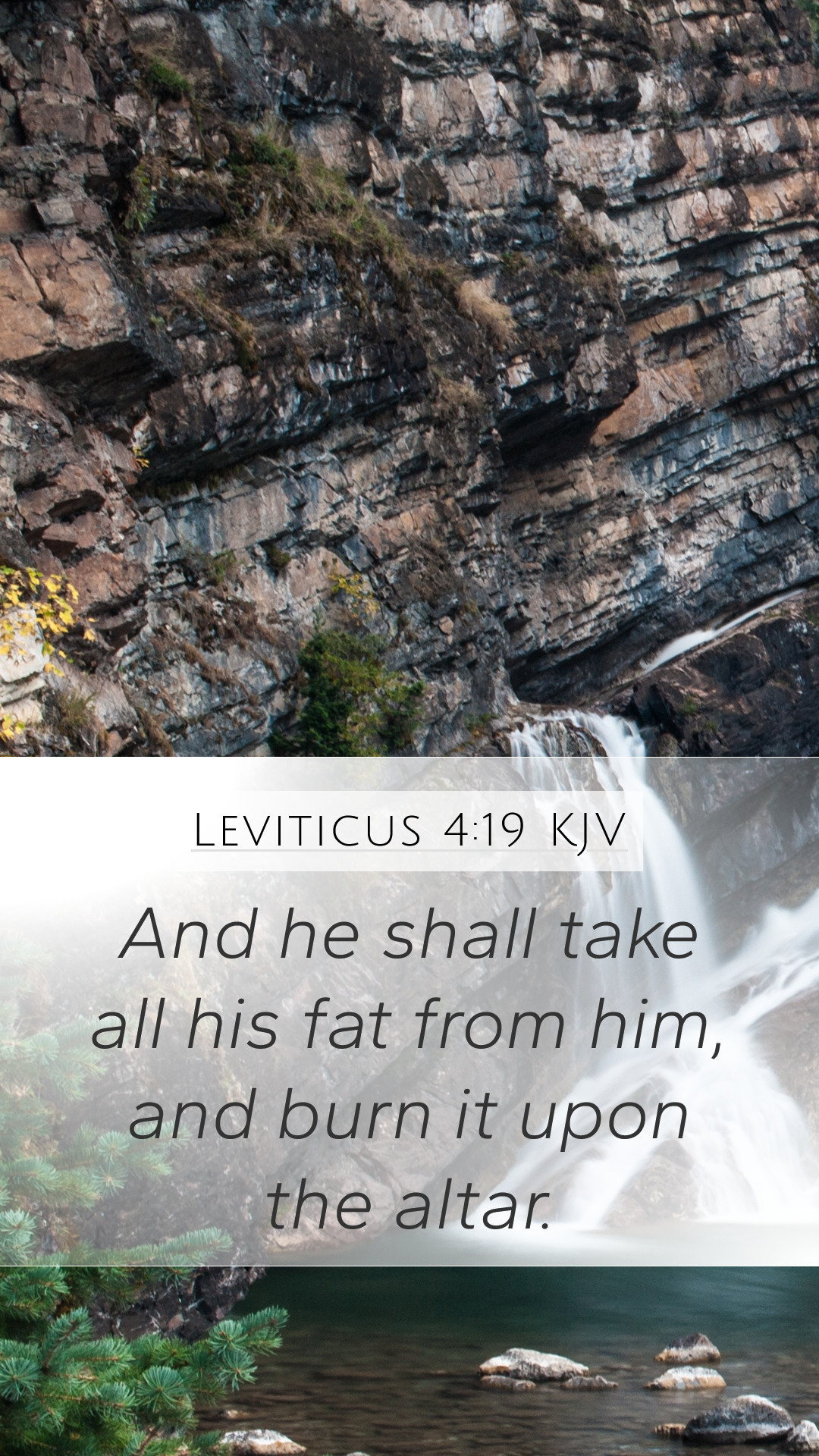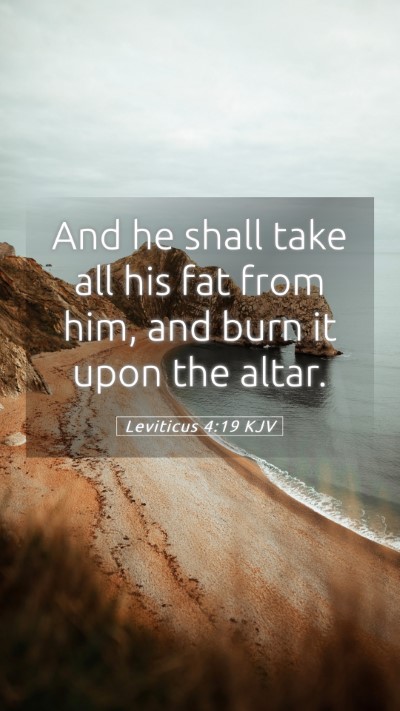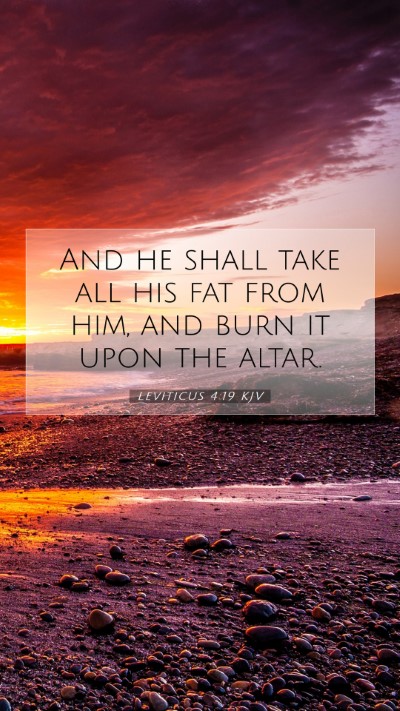Bible Verse Commentary on Leviticus 4:19
Leviticus 4:19 states, "And the priest shall take all the fat thereof, and burn it upon the altar."
This verse is significant in the context of the atonement sacrifices in the Old Testament, outlining the specific duties of the priest and the importance of the sacrificial system for Israel's relationship with God.
Summary and Interpretation
According to Matthew Henry, this passage emphasizes the need for a complete sacrifice, symbolizing the total dedication required of the people before God. The act of burning the fat signifies complete surrender and the importance of purity in worship.
Albert Barnes notes that the fat was considered the best part of the animal, illustrating the principle of offering one's best to God. This mirrors the idea of giving God the first fruits of one's labor, which is a recurring theme throughout Scripture.
Adam Clarke elaborates on the priest's role as an intermediary between the people and God, highlighting the seriousness of sin and the necessity of atonement. Clarke indicates that through the Levitical system, the faithful were reminded of their need for God’s mercy and grace.
Theological Implications
The theological implications of this verse extend to the understanding of sacrifice in both the Old and New Testaments. Sacrifices were essential for atonement, leading to the ultimate sacrifice of Jesus Christ, which fulfilled the requirements of the law and provided a new covenant.
This reference connects to the broader narrative of the Bible focusing on redemption, grace, and the relationship between God and humanity. It serves as a foundation for understanding the necessity of atonement and the symbolism of sacrificial worship.
Practical Applications
The practical applications of Leviticus 4:19 encourage believers to reflect on their own lives and the sacrifices they are called to make in their service to God. This verse can inspire a deeper commitment to spiritual growth and devotion.
- Offering the Best: Just as the Israelites were to offer the best of their sacrifices, Christians are reminded to dedicate their best efforts to God in every aspect of their lives.
- Understanding Atonement: This verse deepens the understanding of atonement and encourages believers to appreciate the significance of Christ's sacrifice.
- Finding Forgiveness: The approach to God through sacrifices illustrates the path to seeking forgiveness and restoration in one’s relationship with God.
Related Scriptures
- Exodus 29:18: Discusses the burnt offering which parallels the themes found in Leviticus 4:19.
- Romans 12:1: "Present your bodies as a living sacrifice..." reflects our call to dedicate ourselves to God.
- Hebrews 9:22: Highlights the necessity of blood for atonement, linking the Old Testament sacrifices to Christ's ultimate sacrifice.
Conclusion
In summary, Leviticus 4:19 encapsulates key aspects of worship, sacrifice, and atonement central to the biblical narrative. The verse teaches about the importance of offering one's best to God and understanding the journey towards reconciliation with Him. For Bible study groups and individuals engaging in online Bible study, this passage can foster rich discussions about the nature of sacrifice and its implications in both historical and contemporary contexts.
Overall, comprehending the meanings of Bible verses like Leviticus 4:19 aids in enhancing our biblical exegesis and enriches our daily life as we seek to understand and apply Scripture.


